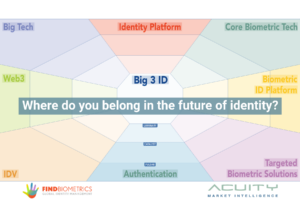Welcome to FindBiometrics’ digest of identity industry news. Here’s what you need to know about the world of digital identity and biometrics today:
British Bank Launches Yoti-Made Digital ID
Yoti has developed a digital identity app for Lloyds Bank, after the latter invested £10 million in the company earlier this year. Like the other digital ID apps launched by Yoti in the UK, Yoti ID and Post Office EasyID, the new Lloyds Bank Smart ID is designed to let users prove their age or identity with their smartphone. And it will be accepted for such purposes by the same entities, such as the Post Office and movie theaters. Together with the Post Office, Yoti became the first to be certified as a Digital Identity Service Provider (DISP) under the UK’s Digital Identity and Attributes Trust Framework (DIATF) last year.
Biometric e-Signature App Launches in Azerbaijan
Azerbaijan’s state telecom, AzInTelecom, has launched a digital signature app supported by biometric identity verification. The SİMA İmza app is designed to leverage facial recognition and liveness detection to ensure that the end user is indeed performing a given transaction using the mobile app. In a story announcing the app, the country’s state news agency, Azertac, explained that it was meant to fight against fraud, noting that “it is recommended that public institutions and private enterprises use SİMA İmza’s biometric solution.” The report also noted that the State Tax Service will soon integrate SİMA İmza with its online tax portal.
Voxx CEO Retained as CFO Gets New Role
Voxx International Corporation has announced an extension of CEO Pat Lavelle’s contract through February 28, 2025, as well as the appointment of Loriann Shelton as CFO, effective March 1, 2024, while retaining her role as COO. The current CFO, Michael Stoehr, will transition to the role of SVP and Treasurer. CEO Lavelle also served as the company’s President until this past February, when he was replaced in that role by Beat Kahli, Voxx’s largest shareholder and a “Managing Member” of GalvanEyes, which has a distribution deal with Voxx’s biometric technology subsidiary, EyeLock.
FacePhi Revenues Jump 22.8 Percent in H1
FacePhi’s revenues were up 22.8 percent in the first half of 2023, amounting to €9.65 million. In announcing the uptick, the Spanish biometrics company noted that H1 had also resulted in negative EBITDA, but explained that this was the result of a “major investment” in its international structure along with new hires — in other words, efforts to promote further, long-term growth. Likewise, partnerships with the fintech companies Qashio and Orokii have opened up business avenues in the UAE, Saudi Arabia, and the United States, with CEO Javier Mira framing the developments as “a result of our solid business commitment aimed at boosting our expansion.”
Spirit Airlines Brings Biometric Bag Drop to Detroit
Spirit Airlines has brought a biometric bag drop system to the Detroit Metropolitan Wayne County Airport (DTW), allowing travelers to check bags without the assistance of an agent. The airport’s six new self-bag drop kiosks feature facial recognition technology enabling them to compare a traveler to their government-issued ID. The system is also in place at Atlanta (ATL), Chicago O’Hare (ORD), Dallas Fort Worth (DFW), Los Angeles (LAX) and Orlando (MCO). At DTW, an “initial testing period” will incorporate both manual ID checks and biometric opt-in processes before moving to a fully automated system, Spirit says.
Dating Platform Finds Matches Based On Face Biometrics
A new dating platform fuses facial recognition technology with physiognomy to match users based purely on their selfie photos. SciMatch was developed by Yanina and Viktoryia Strylets, sisters who studied data science and computer science at Northwestern University and Stony Brook University, respectively. They say they were inspired by research from Northwestern Polytechnical University in China, which claimed to find a correlation between face images and major personality traits, to some controversy. Physiognomy has deep roots in antiquity, but was largely thought to have been discredited as Enlightenment thinkers applied more scientific approaches to its study.
–
October 2, 2023 – by Alex Perala









Follow Us